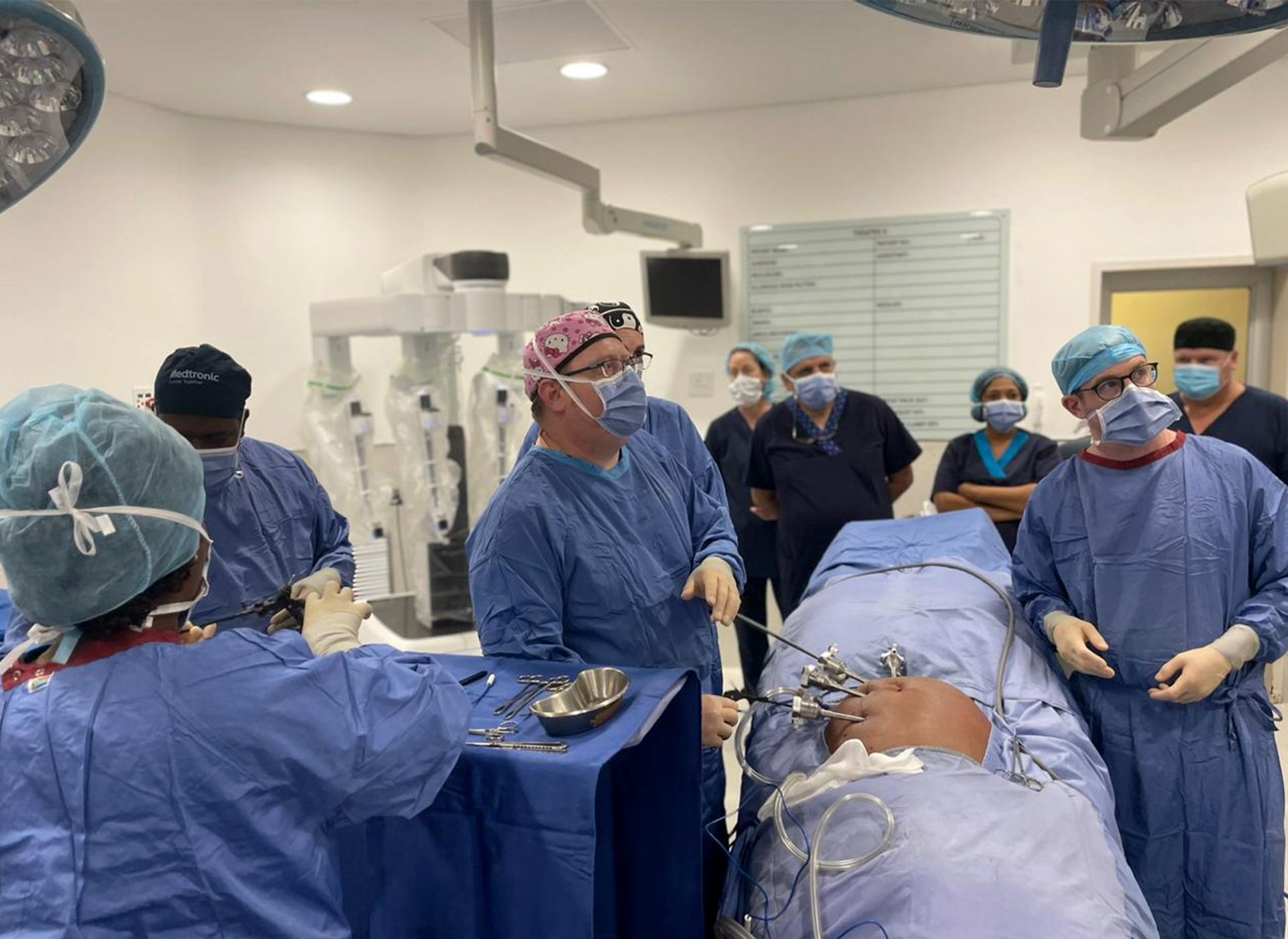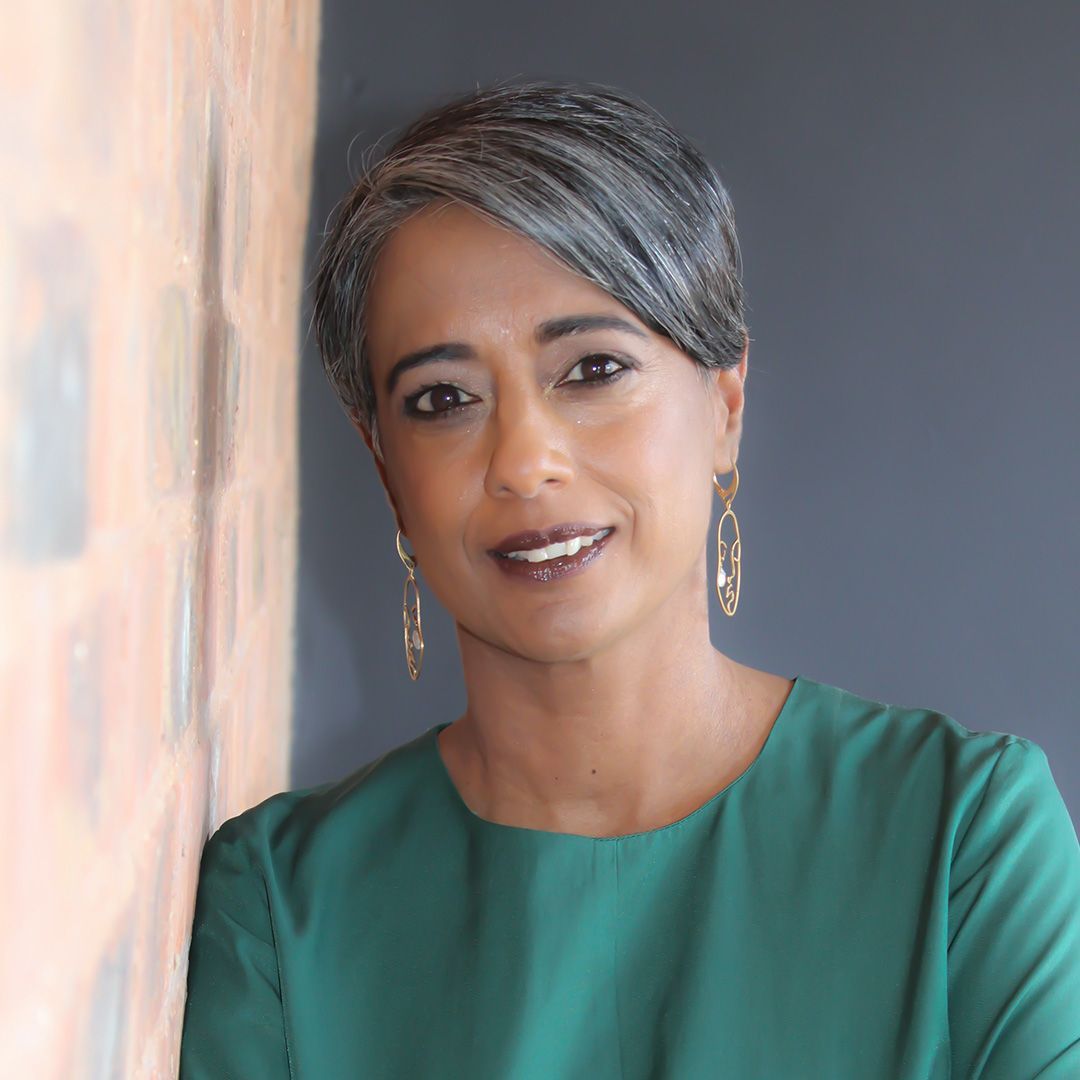Robotics offers ‘mind blowing’ advances in colorectal surgery
Dr Daniel Surridge, a colorectal surgeon specialising in minimally invasive techniques, recently completed robotic assisted procedures for the treatment of rectal and colon cancers.
Netcare Milpark Hospital invests in latest cutting-edge robotic advances
A robotic assisted colorectal surgery programme is bringing the advances of world-class minimally invasive treatment options to Johannesburg’s iconic Netcare Milpark Hospital.
“Technology is not merely a nice-to-have in healthcare; where there is a compelling benefit for patients, it becomes imperative,” says Dr Richard Friedland, chief executive officer of Netcare.
"We are investing in sophisticated equipment such as this flagship da Vinci Xi robotic surgical system alongside our Netcare group-wide digitisation programme because Netcare is all about improving health outcomes and people’s quality of life through evidence-based and data-driven health and care.”
“We congratulate Dr Daniel Surridge on successfully completing the extensive training and proctor surgeries to achieve accreditation to operate with the advanced da Vinci Xi robotic system,” says David Stanton, general manager of Netcare Milpark Hospital.
Dr Surridge, a colorectal surgeon specialising in minimally invasive techniques, recently completed robotic assisted procedures for the treatment of rectal and colon cancers, including removal of a lymph node and pelvic floor repair surgery for prolapse, among other complex procedures for benign disease.
“Making the leap from laparoscopic surgery to robotic assisted approach, I have found the level of detail this system allows amazing. There is so much more we can do for colorectal conditions with incredible precision: ‘precision surgery’ is what the robotic system is about,” Dr Surridge says.
“I recently returned from the 17th European Colorectal Congress in St Gallen, Switzerland, where international colleagues presented excellent results and discussed the profound differences this kind of robotic surgery has made to patients.
“The impact this technology is having in our field of medicine is mind blowing, tangibly demonstrated in the statistics on quicker discharge home after surgery; patients are mobile and able to get on with their normal lives sooner. In addition, the literature shows that patients report considerably less postoperative discomfort,” he says.
“With less blood loss and fewer complications, people spend less time in hospital after colorectal robotic assisted procedures. The bigger picture presented in the international statistics indicates considerable cost efficiencies associated with robotic assisted procedures.”
He points out that the robotic system cannot perform surgery or do anything independently; rather its every movement is controlled by the skilled surgical team. The da Vinci Xi performs additional safety checks, further complimenting the surgeon’s skill.
“The patient is left with only tiny punctures in the skin, where the very slender instruments far more agile than the human hand pierce the skin to access the surgical site deep within the body. The three-dimensional high-definition imaging shows each tiny nerve and blood vessel with exceptional clarity for enhanced precision,” Dr Surridge explains.
Netcare has expanded its robotics programme nationally to include colorectal, urology, urogynaecology and cardiothoracic surgical applications, investing in state-of-the-art technology and training.
The specialised colorectal unit at Netcare Milpark Hospital provides experienced care for conditions relating to the digestive tract, from the exit of the stomach, covering the large intestine, including the rectum up to the anus.
“We thank Dr Surridge for pursuing da Vinci Xi accreditation and mastering the latest technology and developments in colorectal surgery for the benefit of our patients. The establishment of the new unit aims to provide the optimal environment for people requiring such procedures in South Gauteng and surrounding provinces,” Stanton concludes.













